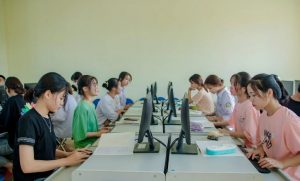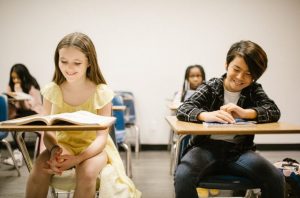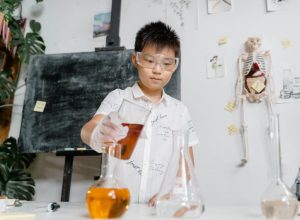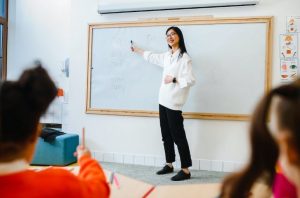
Image courtesy Nasirun Khan
The Direct School Admission (DSA) scheme in Singapore has long been recognized as a gateway for students to secure a place in secondary schools based on their talents and achievements outside of academics.
Traditionally, DSA categories have revolved around sports, performing arts, and leadership.
However, as education continues to evolve, so do the opportunities for students to showcase their unique skills and interests.
This blog post will delve into unconventional DSA categories, shedding light on alternative pathways that can lead students to their dream schools.
Innovation and Technology

Image courtesy Thanh Do
In recent years, the world has witnessed a rapid advancement in technology. The good news is that Singapore is at the forefront of embracing these changes.
Many secondary schools now offer DSA categories focusing on innovation and technology, allowing students to explore their passion for coding, robotics, artificial intelligence, or even app development.
These categories equip students with essential digital skills and foster creativity, problem-solving abilities, and a deep understanding of the digital landscape.
Environmental Conservation and Sustainability

With growing concerns about climate change and environmental sustainability, it is no surprise that some secondary schools have introduced DSA categories centered around environmental conservation.
Students passionate about protecting and positively impacting the planet can showcase their involvement in initiatives such as eco-clubs, recycling campaigns, or community projects promoting sustainable practices.
These categories encourage environmental stewardship and cultivate a sense of responsibility and global citizenship.
Social Entrepreneurship

Image courtesy Ketut Subiyanto
The world needs people driven by profit and a desire to create positive social change. Recognising the importance of social entrepreneurship, some secondary schools offer DSA categories that focus on this field.
Students with a flair for business and a strong commitment to addressing social issues can demonstrate their involvement in projects or organizations that tackle problems like poverty alleviation, education inequality, or healthcare accessibility.
These categories nurture a sense of empathy, leadership, and business acumen among students.
Cultural Heritage and Diversity

Singapore is known for its rich cultural diversity, and some secondary schools have embraced this uniqueness by introducing DSA categories centered around cultural heritage and diversity.
Students who deeply appreciate different cultures, languages, or traditions can highlight their involvement in cultural clubs, intercultural events, or language proficiency competitions.
These categories celebrate Singapore’s multicultural fabric and foster intercultural understanding, respect, and inclusivity.
Media and Communications
Media and communications play a vital role in shaping opinions and disseminating information.
Recognizing the importance of this domain, some secondary schools have introduced DSA categories that focus on media literacy, journalism, public speaking, or digital content creation.
Students who are passionate about storytelling, graphic design, or multimedia production can showcase their involvement in school publications, debate clubs, or online platforms.
These categories nurture students’ effective communication skills, critical thinking, and digital literacy.
Health and Wellness

Image courtesy Mart Production
In recent years, there has been a growing emphasis on health and wellness, both physical and mental.
ome secondary schools have responded to this trend by offering DSA categories centered around health promotion, sports science, or mental well-being.
Students who are enthusiastic about sports, fitness, nutrition, or psychology can showcase their involvement in:
- Sports teams
- Health campaigns
- Mental health advocacy groups.
These categories promote holistic well-being and instill values of discipline, resilience, and empathy.
Public Speaking

Image courtesy Zhu Peng
Public speaking skills have numerous benefits that can significantly impact a student’s future. Here are some ways public speaking can help a student in the long run:
Career Advancement
Effective public speaking skills are highly valued professionally.
Whether delivering presentations, pitching ideas, or leading meetings, communicating confidently and persuasively can significantly enhance career prospects.
Public speaking skills can help students stand out in job interviews, impress employers, and advance to leadership positions.
Leadership Opportunities

Image courtesy Miguel Á. Padriñán
Public speaking often goes hand in hand with leadership roles. Those who excel in public speaking have a better chance of assuming leadership positions in various settings.
Whether leading a team, heading a project, or taking charge of public initiatives, strong public speaking skills can enhance one’s ability to inspire and motivate others, making them more effective leaders.
Effective Communication
Public speaking skills go beyond formal presentations. They encompass the ability to express ideas clearly, engage with others, and listen actively.
These communication skills are essential in various personal and professional contexts, including team collaborations, negotiations, and building relationships.
Students with strong public speaking skills can communicate their thoughts effectively, leading to better interpersonal interactions.
Academic Success

Image courtesy Andrea Piacquadio
Public speaking skills can positively impact academic performance. Students comfortable presenting their ideas in front of others often excel in-class presentations, group discussions, and debates.
Effective public speaking can also enhance students’ ability to articulate their thoughts in written assignments, leading to better grades and a deeper understanding of the subject matter.
Personal Development
Public speaking requires self-confidence, self-awareness, and the ability to manage emotions. Through continuous practice and experience, students can develop resilience, overcome stage fright, and boost their self-esteem.
These personal development aspects cultivated through public speaking can positively impact various areas of life, such as building relationships, networking, and personal growth.
Advocacy and Influence
Public speaking empowers students to advocate for the causes they believe in. It provides a platform to share ideas, raise awareness, and influence others.
By honing their public speaking skills, students can become effective advocates for social change, inspire others to take action and contribute to their communities.
Conclusion

Image courtesy Anastacia Suraeva
The Direct School Admission (DSA) scheme in Singapore has expanded beyond the traditional categories to embrace unconventional paths that cater to students’ diverse talents and interests.
By exploring alternative DSA categories such as innovation and technology, environmental conservation, and social entrepreneurship,
